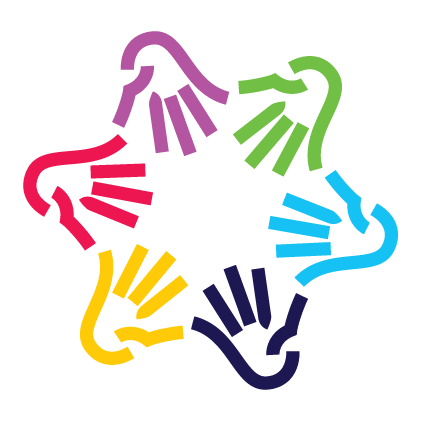The TPACK Framework
The Technology, Pedagogy, and Content Knowledge (TPACK) framework (Koehler & Mishra, 2009) identifies teachers’ professional learning needs that are critical to effective teaching with technology. It represents a complex interaction between three bodies of knowledge needed to successfully integrate technology use into teaching. In relation to the Robotics Social Club program:
- Technological knowledge involves understanding the LEGO® Robotics software, hardware and programming;
- Pedagogical knowledge involves understanding and applying teaching practices such as Visible Learning strategies, positive reinforcement, and visual supports among others, that are particularly relevant to teaching students with ASD; and
- Content knowledge involves understanding of the Personal and Social Capabilities, along with elements of the Technologies curriculum.
Reproduced by permission of the publisher, © 2012 by tpack.org
Teachers can use this as a framework to identify, reflect on, and track their professional learning needs throughout the program.
Consider, in which of these areas do you feel you would benefit from further information and support, to feel confident in implementing the Robotics Social Club program?
Developing Technological Knowledge: LEGO® MINDSTORMS® EV3 Robotics
Many resources exist for teachers to develop their knowledge, competence, and confidence in working with robotics. The following suggestions are provided for teachers both completely new, and already familiar with LEGO® Robotics.
Refer to the Teacher Professional Learning page for:
- Links to further resources
- Contacts and networking opportunities
- Professional learning seminars and opportunities around Australia.
MINDSTORMS® EV3 Software – Robot Educator
- Step-by-step tutorials for programming:
- Basics
- Configuring Blocks
- Straight Move
- Curved Move
- Tanks Move
- Move Object
- Stop at Line
- Stop at Angle
- Stop at Object
- Brick Programming
- Beyond Basics
- Multitasking
- Loop
- Switch
- Multiple Switch
- Sensor Blocks
- Compare
- Colour Sensor – Calibrate
- Basics
- EV3 Software support website
- FAQs
- Downloads
- Software requirements
- App Bluetooth support
- Quick Guides
- Software updates
Other websites/tutorials:
- Dr Graeme Tutorials for Absolute Beginners
- Classroom Activities for the Busy Teacher (Damien Kee)
- Broader resources at http://www.damienkee.com/
- LEGO EV3 Programming Basics
- The LEGO ® MINDSTORMS® EV3 Discovery Book: A Beginner’s Guide to Building and Programming Robots
- LEGO® Engineering (Ian Chow-Miller)
- The NXT Step is EV3: LEGO® MINDSTORMS® Blog
- NXTPrograms.com
- Omar’s Design Tech Blog: SUMO Robotics EV3
Suggestions for networking within your state/organisation:
Developing Pedagogical Knowledge: Effective Strategies
Previous research has identified effective pedagogical practices to support students with ASD to fully participate and access the curriculum. However, every student with ASD is unique, and the effective strategies used to support different students will vary. As a result, the Robotics Social Club program aims to:
- develop teachers’ knowledge of and ability to implement effective strategies, with a specific focus on supporting the students’ development of the Personal and Social Capabilities,
- encourage teachers to reflect on what is effective for the individual students they work with, and
- support teachers to transfer these strategies from the Robotics Club setting to their classroom practice.
It is acknowledged that teachers acting as facilitators will vary greatly in their previous experience in working with students with ASD. Therefore, it is hoped that all facilitating teachers, no matter their previous level of experience, will engage in their own professional learning process through their involvement in the Robotics Social Club program.
Weekly Teacher Reflection
During the development of the program, research identified the key strategies listed in the Weekly Teacher Reflection (Word, 20 KB) as effective for use within the Robotics Social Club context to support the use of effective practices and strategies.
It is recommended that this checklist be used weekly by all facilitating teachers as a reminder regarding the implementation of effective practices and strategies. After each Robotics Club session, complete the checklist to quickly reflect on what is working well that you should continue; what is not working for your club and what you might change for next time; and any new ideas that you might like to start trying next time. Feel free to add your own ideas and strategies.
Links to resources for teaching and working with students with ASD:
- Autism Friendly Practice
- Queensland Department of Education and Training – Autism Spectrum Disorder Online Resource Kit (many links to further resources)
- Autism Queensland – Useful Information – Education and Interventions
- Autism CRC
- British Columbia Ministry of Education – Teaching Students with Autism: A Resource Guide for Schools
- Government of South Australia – Quality Educational Practices for Students with Asperger Syndrome
- Victorian State Government Education and Training Autism Resources
